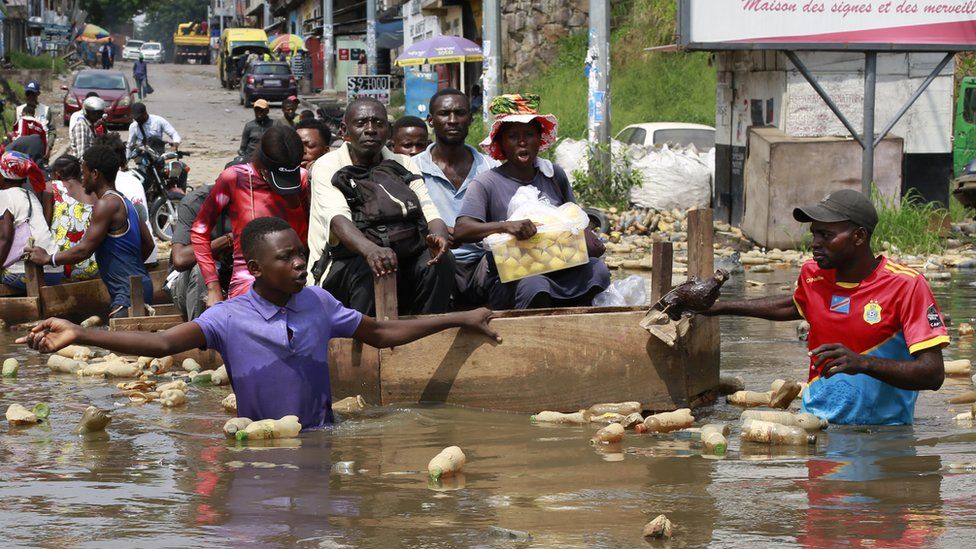
In a harrowing turn of events, the Democratic Republic of Congo (DR Congo) is grappling with unprecedented floods, causing chaos and devastation in its capital, Kinshasa. The overflowing waters of the Congo River have surged to near-record levels, prompting widespread displacement, infrastructure damage, and a looming humanitarian crisis.
The situation unfolded as heavy rains, compounded by rising water levels upstream, led to a rapid increase in the Congo River’s discharge. The consequences have been severe, with many areas of Kinshasa now submerged, leaving residents stranded and struggling to cope with the deluge.
Emergency response teams are working tirelessly to rescue people stranded in flooded neighborhoods, with boats becoming a crucial means of transportation in areas where streets have turned into rivers. Reports indicate that thousands have been displaced from their homes, seeking refuge in makeshift shelters set up by humanitarian organizations.
The near-record levels of the Congo River have overwhelmed existing flood defenses and strained the city’s infrastructure. Key facilities, including hospitals, schools, and vital public services, have been severely impacted. The situation is exacerbated by the city’s topography, with low-lying areas facing the brunt of the flooding.
Local authorities have declared a state of emergency as they grapple with the scale of the disaster. The government, in collaboration with international aid agencies, is mobilizing resources to provide relief to affected communities. Evacuation efforts are underway, prioritizing the elderly, children, and vulnerable populations.
The unfolding crisis has drawn attention to the urgent need for improved infrastructure resilience and disaster preparedness in the region. Experts warn that climate change-induced extreme weather events may exacerbate the frequency and severity of such disasters in the future.
As the floodwaters continue to rise, there are growing concerns about waterborne diseases, food shortages, and the potential for further displacement. Humanitarian organizations are working to deliver aid and medical assistance to those affected, but the sheer scale of the disaster poses significant challenges.
The international community is closely monitoring the situation in DR Congo, with neighboring countries and global organizations expressing solidarity and offering support. The DR Congo floods serve as a stark reminder of the vulnerability of communities to the impacts of climate change and the pressing need for coordinated efforts to mitigate and adapt to these challenges.






